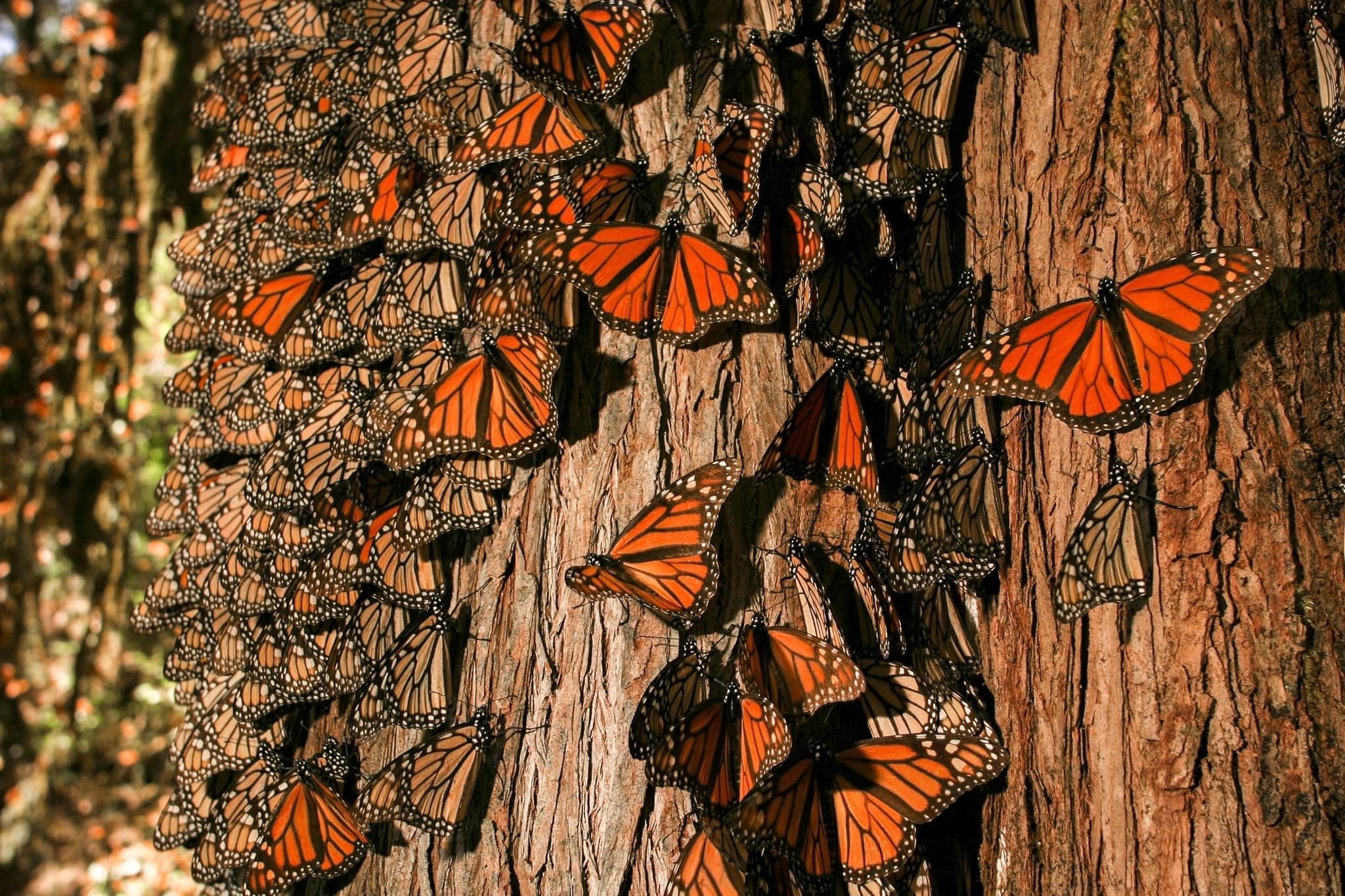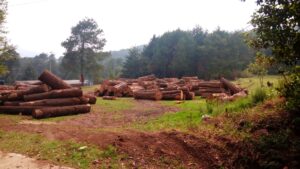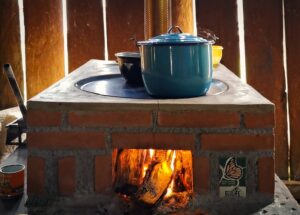Using Carbon Credits Certification to Protect the Monarch Butterfly Biosphere Reserve

In one of our blogs from last month, we explained carbon credits, carbon credits certification, and how they help us fund our Patsari stove project. This funding is vital for the sustainability of our stove project and our effort to protect the Monarch butterfly, which is now classified as endangered. How exactly do carbon credits help protect the Monarch Butterfly Biosphere Reserve, though? Keep reading to learn more about our Patsari stove project, how it’s protecting the monarch’s habitat, and how carbon credits certification makes it possible.
What is Carbon Credits Certification?
You’ll be able to find a much more in-depth explanation of carbon credits and carbon credits certification in our previous blog, but here’s a quick explanation:
One carbon credit corresponds to one ton of carbon dioxide reduced, avoided, or eliminated from the atmosphere. These credits are developed by following a strict set of international standards quantifying emission reductions. After being verified, they can be sold on voluntary markets to organizations dedicated to reducing their carbon footprint.
The Gold Standard for the Global Goals is the best-recognized global organization for carbon credits certification. Our stove project is now designated as a Certified Gold Standard project, which means that it has undergone the most rigorous review of Voluntary Emission Reduction credits.
With this certification, we can now sell carbon credits generated by the Patsari stove project to other organizations, helping reduce climate change and providing sustainable revenue for the stove project.
Monarch Butterfly Biosphere Reserve
 Each year, Monarch butterflies travel up to 3,000 miles to reach the monarch butterfly Biosphere Reserve in Michoacán, Mexico. Here, millions of monarchs gather in the oyamel fir trees to overwinter.
Each year, Monarch butterflies travel up to 3,000 miles to reach the monarch butterfly Biosphere Reserve in Michoacán, Mexico. Here, millions of monarchs gather in the oyamel fir trees to overwinter.
These butterflies have been traveling to this specific spot in Mexico for the winter for generations. Unfortunately, over the last 30 years, the number of butterflies migrating to Mexico for winter has been dwindling, and at this point, it “has decreased by more than 80%” according to the World Wildlife Fund.
Threats to the Monarch Butterfly Biosphere Reserve
The oyamel fir trees of the reserve provide shelter and warmth for butterflies, helping them survive the winter. Unfortunately, despite the fact that logging is banned in the reserve, illegal logging and forest degradation pose a significant threat to the monarchs. As these activities cause the forest to thin, the less protection these butterflies have, causing millions of monarchs to freeze.
ECOLIFE found that the communities surrounding the reserve were contributing to the forest’s degradation by harvesting wood to create cooking fires. These communities do not mean any harm to the forest and are simply doing what they need to do to survive. This is why we realized that in order to protect the reserve and the monarchs, we needed to address the community’s needs.
We realized that these communities needed more fuel-efficient stoves to significantly reduce the amount of fuel needed. In addition to this, smoke from indoor cooking in the home was damaging the health of these families. Taking these needs into consideration, we developed the Patsari stove.
The Patsari Stove Project: ECOLIFE’s Solution
 The Patsari stove is a sturdy, brick-walled stove that contains a highly efficient combustion chamber. Attached to each stove is a chimney that funnels smoke out of the home and all cooking surfaces are sealed to keep smoke from leaking into the house.
The Patsari stove is a sturdy, brick-walled stove that contains a highly efficient combustion chamber. Attached to each stove is a chimney that funnels smoke out of the home and all cooking surfaces are sealed to keep smoke from leaking into the house.
This stove was designed specifically with these communities in mind, which is why it has flat surfaces that are ideal for cooking tortillas and other traditional meals. In addition to this, the stove’s brick walls make it safe for children. The Patsari is our culturally appropriate solution to protecting both community health and the monarch.
The Patsari has eliminated 90% of smoke from homes and uses 60% less firewood than other methods of cooking. So far, we have been able to build more than 12,300 stoves, saving an estimated 992,500 trees and impacting more than 61,000 community members.
In addition to this, the Patsari stove project has experienced huge growth each year. In addition to donations, carbon credits certification has played a large role in allowing this project to continue growing at this rate. Carbon credits channel funding into programs that have proven environmental and social benefits, like our Patsari stove project.
Carbon credits allow us to help meet global carbon reduction goals while investing in important emission reduction projects that require funding to take place. Funding from the carbon markets provides a sustainable revenue model for the Patsari Stove Project, allowing us to scale implementation and impact. This project’s carbon credits certification makes it possible for ECOLIFE to continue our mission to protect wildlife, natural resources, and the people who depend on them.
Protecting Monarch Butterflies With Carbon Credits Certification
Monarch butterflies are incredibly resilient, traveling more than 3,000 miles each year to overwinter in Mexico. Unfortunately, they are equally as vulnerable. The good news is that we’re making great progress in protecting this incredible creature, but we still have a lot of work to do. The more stoves we build and the more community members we educate about the plight of the monarch, the more monarchs we can protect.
Carbon credits certification allows us to build more stoves, save more lives, protect the Monarch Butterfly Biosphere Reserve, and reduce more carbon emissions. Learn more about how our stoves support our focus on community-based conservation.